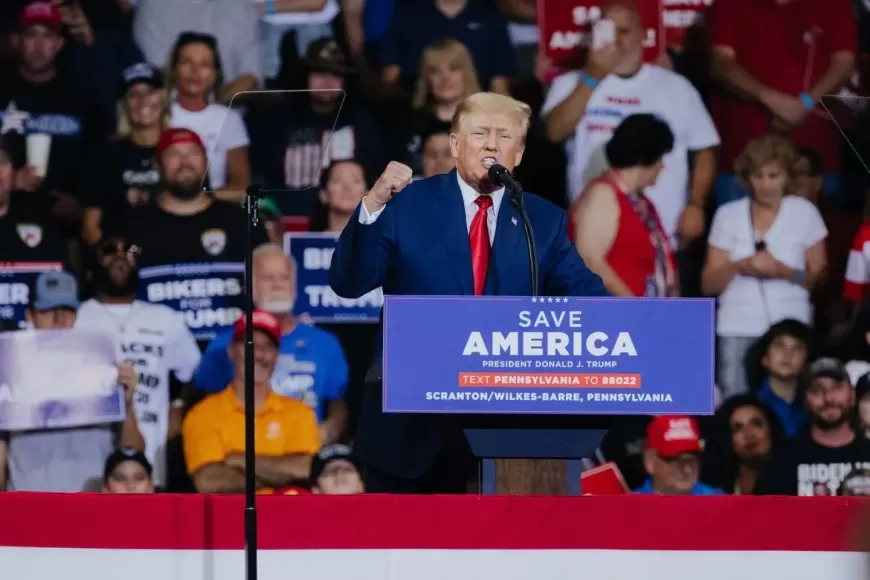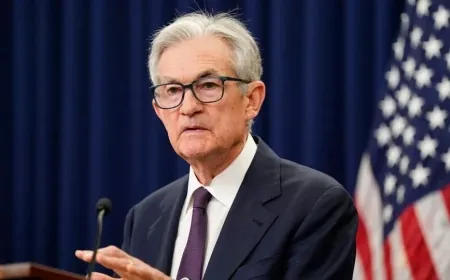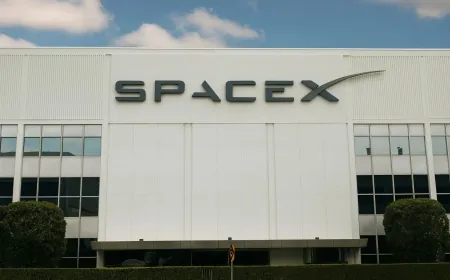Wall Street Divided on Tesla's Future Amid Potential Trump Presidency: EV Credits and Trade Policies in Focus
Tesla's future is uncertain as Wall Street debates the impact of a potential Trump presidency on EV credits and trade policies.

Tesla CEO Elon Musk has publicly endorsed Donald Trump for the upcoming presidential election, sparking mixed reactions on Wall Street about Tesla's future if Trump wins a second term. The discussion mainly revolves around Biden's EV tax incentives and potential changes in trade policies.
A major point of debate is the $7,500 EV tax credit from the Biden administration. Trump, his running mate J.D. Vance, and several Republicans have opposed these incentives. Last fall, Senator Vance introduced the Drive American Act to remove over $100 billion in EV subsidies and replace them with credits for gas or diesel vehicles.
According to Dan Ives from Wedbush, cutting these credits could actually benefit Tesla (TSLA). "It could help Tesla increase its lead in technology over its competitors," he said, noting that Tesla is strong enough to succeed without subsidies, unlike newer EV companies that are still losing money. “Tesla’s size and reach are unmatched,” Ives added.
However, some disagree. Ron Jewsikow from Guggenheim believes a Trump presidency could hurt Tesla. He said the EV tax credit is important for making Tesla's cars affordable and expressed concern about possible higher tariffs on Chinese batteries, which Tesla uses.
Musk's support for Trump is being watched closely, especially after his endorsement following the failed assassination attempt on July 13. Musk praised Trump’s choice of Vance as VP and pledged $45 million monthly to Trump's campaign. Trump has proposed a 60% tariff on all Chinese imports, which would escalate the trade war, compared to the current administration’s 25% tariff on Chinese lithium-ion batteries and parts.
I fully endorse President Trump and hope for his rapid recovery pic.twitter.com/ZdxkF63EqF — Elon Musk (@elonmusk) July 13, 2024
This tariff plan worries analysts about its impact on the car industry, including Tesla. Tom Narayan from RBC noted that Trump’s unpredictable policies in his first term caused significant anxiety within the auto sector. "His threats to put tariffs on Canadian aluminum and European goods made the industry nervous," Narayan said, highlighting the potential issues a second term might bring.
While the exact effects of a Trump presidency on Tesla are unclear, many agree that it might slow down EV adoption and hurt the broader sector. Jewsikow stated, “It doesn't necessarily sink Tesla's ship, but it does sink some ships.” Ives agreed, predicting negative outcomes for Detroit and major EV players like GM and Ford, though Tesla might remain relatively unaffected.
These discussions come amid changing views toward Tesla. The company reported better-than-expected second-quarter deliveries, sparking an 11-day stock rally, despite a brief sell-off due to delays in its robotaxi project. Tesla’s stock has risen 40% since June, reflecting the market’s mixed reactions to the ongoing political and economic discussions.
Implications for the Broader EV Market
The broader implications of a Trump presidency on the EV market could be significant. If the Biden-era EV tax credits are rolled back, it could slow down the adoption of electric vehicles across the United States. This would affect not only Tesla but also other major automakers like General Motors (GM) and Ford (F), who are investing heavily in EV technology.
Trade Policies and Supply Chain Concerns
Trump’s proposed tariffs on Chinese imports could also disrupt the supply chains of many automakers. The current 25% tariff on Chinese lithium-ion batteries and parts already poses challenges, and a further increase to 60% could escalate costs for manufacturers and consumers. This could lead to higher prices for EVs and potentially slow down their adoption.
Tesla's Strategic Position
Despite these potential challenges, Tesla's strong market position and technological leadership could help it weather the storm better than its competitors. Tesla's ability to produce vehicles at scale and its significant brand loyalty could give it an edge in an unsubsidized environment. However, the company would still need to navigate the complexities of a changing political landscape and evolving trade policies.
Consumer Impact
For consumers, the removal of EV tax credits would likely make electric vehicles more expensive. This could deter potential buyers and slow down the transition from gasoline to electric vehicles. Consumers may also face higher prices for EVs if tariffs on Chinese batteries increase, as these costs are often passed down from manufacturers to buyers.
Also Read: New EV Tax Credit 2023: List of Electric Vehicle Models Eligible for Up to $7,500 in New Tax Credits































































